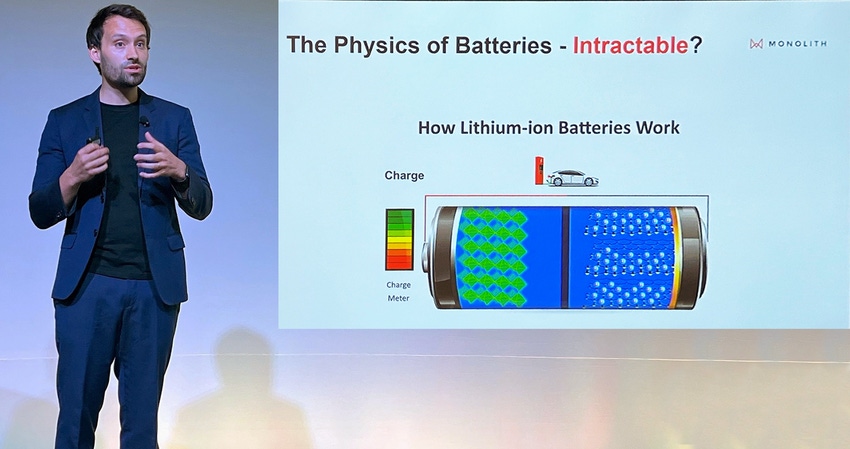AI Tool Reduces Battery Testing by Up to 70%
Monolith AI’s Next Test Recommender uses artificial intelligence to optimize test processes.

A new artificial intelligence (AI) tool from Monolith AI has the potential to slash automotive battery testing by up to 70%, addressing a significant bottleneck in the timely launch of new electric vehicles (EVs).
Dr. Richard Ahlfeld, Monolith's CEO and founder, highlighted the challenges in battery testing due to increasing demand and fierce competition in a conversation with Battery Technology following his keynote at The Battery Show North America in September.
“Engineers perform battery tests across thousands of channels, generating terabytes of data per week. They’re running out of test stands and don’t know what optimal tests to run, and certainly don’t have the ability to learn from this vast amount of data as quickly as they need,” Ahlfeld said. “This is where AI comes in.”
By harnessing the power of data learning, test engineers can unravel intricate behavior characteristics that prove highly complex and challenging to decipher without the appropriate tools, he explained. AI software, capable of learning from real-world test data, emerges as a dependable and efficient solution to address the formidable physics challenges in batteries—an aspect that current simulation and test planning tools struggle to tackle effectively.
Monolith’s AI tool, known as Next Test Recommender (NTR), uses a robust active learning algorithm to recommend validation tests during the development of complex products like batteries and fuel cells.
According to Ahlfeld, NTR harnesses the capabilities of AI to model battery performance across the design spectrum, significantly reducing the need for an extensive traditional test plan. NTR enables the user to simultaneously apply multiple machine learning algorithms, strategically guiding your testing trajectory with minimal incremental steps.
For example, it allows you to anticipate the pivotal tests to execute, he said. Testing excessively wastes time on reaffirming known information, while inadequate testing risks overlooking performance issues, he noted. Striking the right balance is crucial for scheduling and quality. Using NTR, one can prioritize the most critical tests and forego the rest.
Monolith claims that engineers can achieve up to a 70% reduction in testing by leveraging the NTR AI algorithm.
About the Author(s)
You May Also Like





